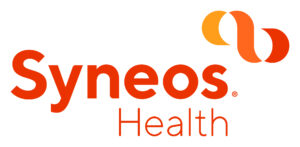-
1. Cover - Oncology
-
2. Introduction - Oncology 2021
-
3. Contents - Deep Dive: Oncology 2021
-
4. Cancer research faces uncertain future
-
5. ASCO: the next generation of oncology
-
6. Sign-up for pharma news alerts
-
7. Oncology and COVID: lessons for the future
-
8. Digital tools meet immuno-oncology
-
9. Lessons from the first cell and gene cancer trials
-
10. Patient engagement in oncology R&D
-
11. How digital pathways are changing healthcare
-
12. A new investment era for digital start-ups
-
13. Enabling healthcare’s digital future
-
14. Podcast
-
15. Sites in a post-COVID world
-
16. Surprise pandemic lessons for pharma
-
17. Hybrid engagement in oncology comms
-
18. Subscribe to future Deep Dive issues
-
19. Contact the Deep Dive team


